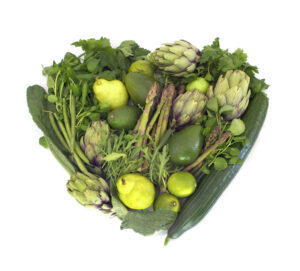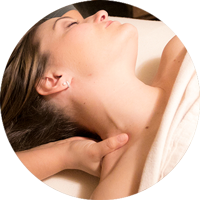Six Functional Medicine Tips to Reverse Your Winter Skin Woes
Acne. Eczema. Psoriasis. Windburn. Chapped Lips. Winter Rash. Dandruff.
With colder temperatures and less moisture in the air, the wrath of winter skin issues goes on and on.
While you may turn to topical treatments for skin issues, Functional Medicine encourages you to turn within.
Your skin is the largest organ in your body and can be considered an indicator of your underlying health. Therefore, when treating the skin, it is helpful to think about what you are putting inside your body that can help foster a nourishing cellular environment.
1) Hydration
 Dehydration tends to happen even more in the winter. Colder temps can reduce thirst sensation by 40%. On top of that, there is less moisture in the air.
Dehydration tends to happen even more in the winter. Colder temps can reduce thirst sensation by 40%. On top of that, there is less moisture in the air.
So drink up and strive for the average 8-10 glasses of water mark.
To further combat dryness, you may also consider adding a humidifier to your home, keeping your thermostat between 68-75, and being mindful of keeping your skin moisturized.
2) Healthy Fats
 Omega-3 fatty acids will help keep your skin smooth and moisturized. They regulate oil production and help reduce inflammation that can cause acne and redness.
Omega-3 fatty acids will help keep your skin smooth and moisturized. They regulate oil production and help reduce inflammation that can cause acne and redness.
Sources of Omega-3 are found in fatty fish such as oil, salmon, herring, and mackerel.
Fatty fish also contains the skin saving antioxidant vitamin E and Zinc which is beneficial for reducing inflammation and boosting overall skin health.
If you’re looking for an extra boost of Omega in your system and unable to get it through diets, supplements may help. Before supplementing your diet, we always recommend talking to a licensed care provider to ensure you are taking the right levels needed for your body. At your next visit, ask your provider if our essential Omega Balance supplement, available in-clinic or through our online store, is right for you!
3) Add Some Antioxidants!
Antioxidants protect the skin’s surface from damage caused by free radicals, UV exposure, pollution and other environmental factors. Antioxidants are a popular ingredient in skin care, as they have anti-aging properties.
Lucky for us, Antioxidants can easily be added into your daily diet to give your winter skin that extra layer of protection.
Vegetables such as such as carrots, broccoli, and potatoes have high antioxidant levels.
 Carrots are a rich source of Vitamin C, an antioxidant that produces collagen. Collagen is a protein that is crucial to keeping skin elastic and hydrated. These orange veggies are also high in Vitamin A, an antioxidant that fights free radicals, preventing the development of wrinkles and lines.
Carrots are a rich source of Vitamin C, an antioxidant that produces collagen. Collagen is a protein that is crucial to keeping skin elastic and hydrated. These orange veggies are also high in Vitamin A, an antioxidant that fights free radicals, preventing the development of wrinkles and lines.
Broccoli contains several vitamins, minerals and antioxidants that help skin stay healthy and strong. Make yourself a dynamic salad with broccoli and carrots to help promote skin health!
Potatoes are not only delicious, but they are your skin’s new best friend! These versatile veggies are packed with antioxidant Vitamins B1, B3, B6, and C. This combination helps reverse skin tanning, soothe inflamed skin cells, prevent wrinkles and diminish dark circles. 
Berries are another antioxidant-packed food that can keep winter skin looking fresh. The antioxidants found in berries fight free radicals, which keeps skin tight and youthful.
4) Green it up!
 Not only do they make a great salad, but leafy vegetables like spinach, kale, mustard greens are all rich in skin-nourishing Vitamin K, Vitamin E and beta-carotene. This combination protects the skin from free radicals and assists in DNA repair.
Not only do they make a great salad, but leafy vegetables like spinach, kale, mustard greens are all rich in skin-nourishing Vitamin K, Vitamin E and beta-carotene. This combination protects the skin from free radicals and assists in DNA repair.
Vibrant green veggies also possess anti-inflammatory properties and have a high Sulphur content. Sulphur’s secret superpower is reducing skin’s redness and flakiness—two qualities that are abundant in Winter skin!
Diving into rich green salads or yummy green smoothies can help orient your diet to skin-friendly options.
5) Check for Food Sensitives
 Skin issues can often be a sign of something going on inside your body. Food allergies can create itchy skin or an excess of insulin might be indicated by dry, scaly patches. Taking a food sensitivity test can help you eliminate sneaky foods that may be irritating your skin.
Skin issues can often be a sign of something going on inside your body. Food allergies can create itchy skin or an excess of insulin might be indicated by dry, scaly patches. Taking a food sensitivity test can help you eliminate sneaky foods that may be irritating your skin.
Seeing a Functional Medicine practitioner can be a great way to assess your skin condition and find the right tests to diagnose what might be going on.
To keep skin dewy, all you may need is a dietary adjustment or eliminating a specific allergy food. Schedule an appointment with one of our Functional Medicine doctors today to get to the bottom of your Winter skin worries.
6) Reduce Alcohol Intake
 While many of us enjoy a drink here and there, alcohol can actually be detrimental to your skin. Vogue reports that alcohol dries out skin, causes wrinkles and bodily inflammation.
While many of us enjoy a drink here and there, alcohol can actually be detrimental to your skin. Vogue reports that alcohol dries out skin, causes wrinkles and bodily inflammation.
Jairo Rodriguez, a New York based nutritionist, explains that alcohol effects any and all mucous membrane, from the liver to the skin. The first effect of this is dehydration, which can lead to the premature development of wrinkles.
Alcohol also causes a histamine reaction, which creates redness and flushing in the skin. If you consistently drink over a long period of time, this redness can become a prominent facial feature that you won’t be able to escape.
If you are looking to reduce your alcohol intake, there are plenty of options to make this a reality! You can participate in movements like Dry January or indulge in delicious mocktails that hit the spot!
Looking for more Skin help?
The ideas listed above are a few, simple ways to achieve glowing skin despite the Winter chill. If you are looking for more comprehensive and long-term skin solutions, meeting with a member of our Functional Medicine and Clinical Nutrition Team can help you reach your skin goals.
Our practitioners will work with you to create a specified health and nutrition play that address your concerns and makes the lifestyle changes necessary to keep your skin fresh. Fill out the form below to get scheduled today!
Do your skin the ultimate favor this Winter and follow our 6-step method to keep your skin glowing all the way into Spring!










